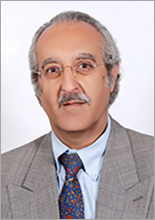Arab Capital Markets: Market Regulation – Part VI
At the end of this six-part series on Arab Capital Markets, Part VI looks at regulatory structures employed by Arab governments to oversee capital market performance. This section examines the Arab market regulatory bodies in Saudi Arabia and Egypt as well as explores recent Arab reforms seeking improvement of capital market effectiveness.
Capital markets in Arab countries are regulated and supervised generally by a “securities commission” or Capital Market Authority (CMA) exclusively focused on capital markets, or by an agency regulating and supervising all nonbanking financial intermediation like the Egyptian Financial Supervisory Authority (EFSA). Most of these agencies are members of the Union of Arab Securities Authorities (UASA).
The roles of the CMAs are well summarized by the Saudi CMA as (a) regulate and develop the capital market and promote appropriate standards and techniques for all sections and entities involved in securities trade operations; (b) protect investors and the public from unfair and unsound practices involving fraud, deceit, cheating, manipulation, and inside information trading; (c) maintain fairness, efficiency, and transparency in securities transactions; (d) develop appropriate measures to reduce risks pertaining to transactions of securities; (e) develop, regulate, and monitor the issuance of securities and trading transactions; (f) regulate and monitor the activities of entities working under CMA; and (g) regulate and monitor full disclosure of information related to securities and issuers. In order to perform those duties, the Saudi CMA is organized in four divisions: Enforcement, Market Supervision, Corporate Finance and Issuance, and Capital Market Institutions Supervision. Within market supervision, a specific department is dedicated to the promotion of sound corporate governance.[1]
Egypt established the EFSA in 2009 to supervise and regulate nonbanking financial markets and instruments, including the capital market, stock exchange, insurance services, mortgage finance, financial leasing, factoring, and securitization. EFSA’s role is to regulate the market and ensure its stability and competitiveness to attract more local and foreign investments by (a) licensing nonbanking financial activities; (b) supervising licensed entities engaged in nonbanking financial activities; (c) monitoring the dissemination of information related to nonbanking financial markets; (d) ensuring transparency and competitiveness in nonbanking financial services; (e) protecting nonbanking market participants’ rights; (f) taking necessary measures to limit market manipulation and fraud; (g) supervising the training of market participants; (h) cooperating and coordinating with other nonbanking regulatory bodies abroad; (i) communicating, cooperating, and coordinating with societies and organizations that regulate the work of financial supervision authorities across the globe; and (j) contributing to spreading investment culture and awareness.
Additional recent Arab reforms to strengthen market efficiency have included the adoption of legislation and regulations that have strengthened the powers of capital market regulators, including their enforcement capacity. These reforms included a major emphasis on corporate governance issues, disclosure, and transparency. The establishment of dedicated corporate governance units within securities regulators (for example, Oman, Saudi Arabia) has equipped regulators to better react to market abuses. In Kuwait, a new Capital Market Law was adopted in 2010, which established a Capital Market Authority (CMA) whose implementing regulations were adopted in 2011. The Capital Markets Law includes specific prohibitions on money laundering and insider trading.[2] Finally, in 2011, Lebanon established the Financial Markets Authority strengthen the institutional structure of the CMA, listing requirements, mechanisms to prevent market abuse, disclosure requirements for public companies, and licensing brokers and intermediaries (OECD 2013).
Overall, capital markets regulation is making significant progress. However, it will take time to build up the confidence required by market participants’ to foster market vibrancy and limited volatility. Issues of corporate governance, transparency, and disclosure, as well as settlement and payments, remain high on the agenda.
Read Part I, Part II, Part III, Part IV, Part V
[1] See Saudi CMA’s website; http://www.cma.org.sa/En/AboutCMA/
[2] See Kuwait CMA’s website; http://www.kuwaitcma.org/Ar_Home.cms
Wafik Grais is an International Senior Adviser specializing in Islamic finance, financial regulation, investment financing, private equity management, and corporate governance with expertise in SMEs and green growth financing. He was co-founder and chairman of Viveris Mashrek, a Cairo-based, financial advisory services company specialized in private equity investments in SMEs, licensed by Egypt's Financial Supervisory Authority. He spent 28 years in international finance notably with the World Bank in Washington DC where he held several senior positions both in operations and at corporate levels. He holds a Ph.D. in Economics.
